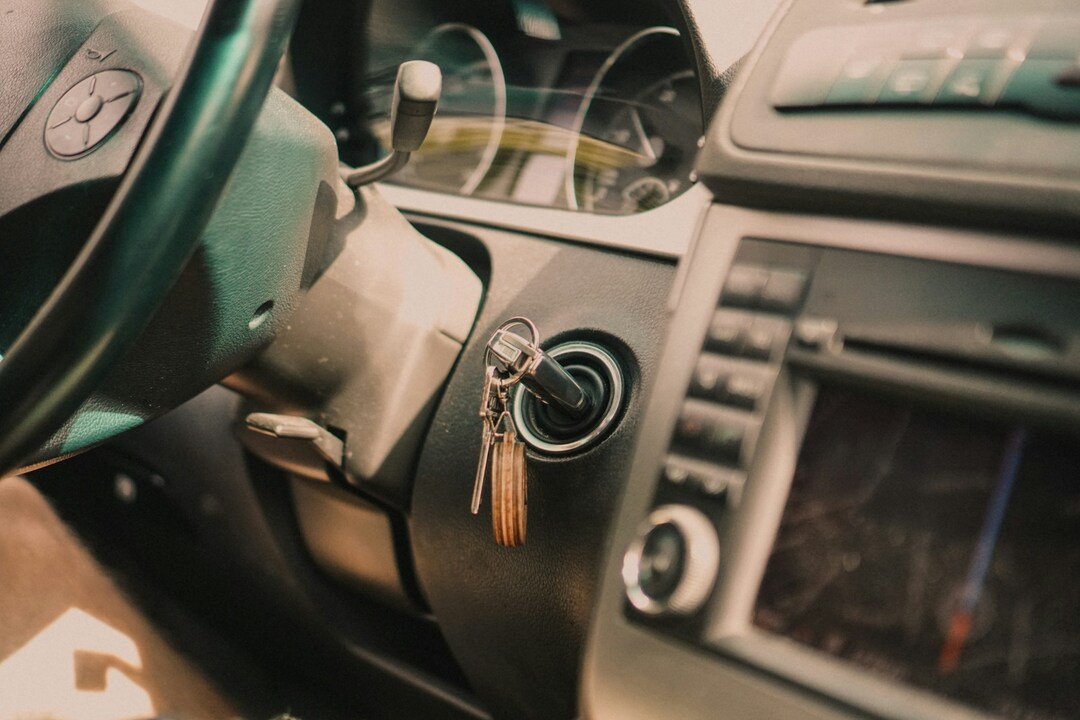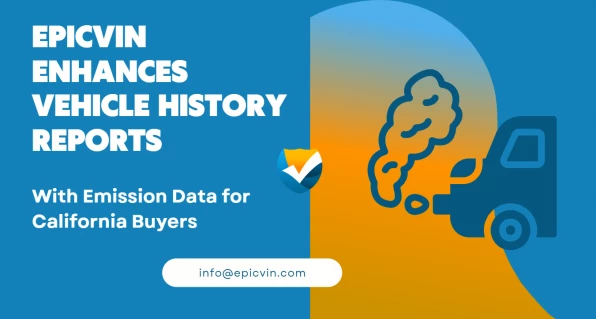About 38.6 million units of used light vehicles were sold in the United States in 2022. Every year, many car owners often decide to sell their vehicles due to various reasons. This may include the need for immediate cash, upgrading or downgrading to a new car, high maintenance costs, lifestyle changes, environmental concerns, and much more. However, selling a used vehicle is more than just a transaction as it involves various considerations.
Furthermore, among the available options to sell your used vehicle include private sales, auto dealerships, specialty car auctions, and selling the car online. Generally, selling your car online allows you to reach a wider audience. Also, it is more flexible and convenient, and you can sell your car online faster. Conversely, selling to a reputable car dealership ensures guaranteed sale at the fair market value. In this post, we will explore the available options to sell your used car quickly and for the most money. Continue reading to discover more.
Selling a Car Online

Recent statistics have shown that most new cars lose up to 20% of their value within the first year of use. As a result, many car owners find it necessary to sell their car online after using it for up to one year -due to the added convenience and flexibility. However, without the right guidance, would-be car sellers can find it difficult to navigate the process of selling their car online for the best value possible.
Easy Steps to Sell a Car Online for the Most Money
Below are some of the best strategies to ensure that you can sell your car online for the best price or instant cash offer:
Find Vehicle Details
Gather all relevant information about your car, including its make, model, year, mileage, car insurance, and any additional features or upgrades. Potential buyers often seek comprehensive details before placing an instant offer online. Therefore, having this information readily available eases the selling process.
Estimate the Value of Your Car
Utilize tools and an online platform designed for car valuation to determine the worth of your used car. Input your vehicle’s VIN, vehicle history report, or license plate number to receive an estimate of its current market value. Many online car-buying sites have this feature. This step is completely free and it provides a realistic starting point for setting a competitive price. Also, you can meet verified online car dealers to bid on your used car.
Describe Your Car and Make Quality Photos
Produce a well-written and honest description of your used car, highlighting its key features, maintenance history, and any unique selling points. Accompany this with high-quality photos that showcase your vehicle from various angles. Clear visuals and a comprehensive description create trust and enhance your car’s appeal to prospective buyers and online car dealers.
Compare the Offers
Once you have listed your used car on online platforms, be prepared to receive offers and requests for an instant quote from interested buyers and online dealers. Compare these offers from the participating dealer carefully, taking into account not just the offered price but also any additional terms or conditions. You can compare with prices of similar cars on the Facebook marketplace or other platforms like EpicVIN. Negotiate when necessary to secure the best deal.
Selling to a Car Dealership

Dealerships are businesses that buy and sell vehicles. Some auto dealers can propose instant cash offers if they're satisfied with your car. Here is what to know if you are considering selling to them.
Streamlined Process and Quick Sale
Selling your car to a local dealer or online dealer often offers a swift and uncomplicated transaction. Dealerships are experienced in purchasing used cars and have established processes in place, making the experience relatively efficient. If time is a critical factor for you, this option may be a good choice.
Trade-In Opportunities
In some cases, the local dealer or online dealer can encourage trade-ins. Thus, allowing you to use the value of your current car as a credit to purchase a new one. This can be beneficial, particularly if you are planning to upgrade your vehicle. However, keep in mind that the value from trade-ins may not match the potential selling price in the private market.
Limited Negotiation Power
When selling to a local or online dealership, your room for negotiation may be restricted. Dealerships typically have predefined pricing structures, and while some negotiation may be possible, it might not match the flexibility available in private transactions.
Research and Compare Offers
Before committing to selling your car to a specific dealership, conduct thorough research. Get quotes from multiple dealerships to compare their offers. This ensures you have a clear understanding of the market value of your vehicle and enables you to make an informed decision that maximizes your financial profit.
Pros and Cons of Selling to a Dealership
Selling your car to a dealership can be a convenient option, but like any transaction, it comes with its set of advantages and disadvantages.
Pros
- As mentioned earlier, selling to a dealership is often a swift and streamlined process.
- Dealerships commonly offer trade-in options, allowing you to use the value of your current vehicle as credit towards the purchase of a new one. This can simplify the process of upgrading your car and may offer tax advantages in some regions.
- Selling to a dealership requires less personal involvement compared to private sales. You do not have to advertise, negotiate with individual buyers, or handle the paperwork associated with a private transaction.
Cons
- One of the primary drawbacks of selling to a dealership is the potential for a lower sale price. Dealerships aim to make a profit when reselling your car, and the offer they provide may not match the market value you could achieve in a private sale.
- Dealerships often have fixed pricing structures, limiting your ability to negotiate a higher price for your vehicle. While some negotiation may be possible, it might not offer the flexibility available in private transactions.
- Offers from dealerships can be influenced by current market demand for your specific make and model. If there is a lower demand for your type of vehicle, the dealership may offer a lower price.
Strategy for Selling Your Car to a Dealership
Here are some strategies to sell your vehicle directly to an auto dealership for a good price:
Research Your Car’s Value
Before engaging with dealerships, conduct thorough research to determine the fair market value of your car. Utilize online tools, industry guides, and local market trends to establish a realistic baseline. This knowledge equips you with valuable information during negotiations.
Get Multiple Quotes
Do not settle for the first offer you receive. Seek quotes from multiple dealerships to compare their evaluations. This not only provides a clearer understanding of your car’s market value but also creates a competitive environment that may encourage dealerships to offer more favorable terms.
Showcase Your Car’s Condition
Present your car in the best possible light. Ensure it is clean, and well-maintained, and address any minor repairs or cosmetic issues. Dealerships are more likely to offer a higher price for a vehicle that appears well-cared-for and requires minimal reconditioning.
Timing Matters
Consider the timing of your sale. Dealerships may have sales targets or quotas to meet, and selling at the end of a financial quarter or during promotions could work to your advantage. However, be cautious not to rush the sale at the expense of a fair price.
Be Transparent About Your Vehicle
Honesty is key. Disclose any known issues with your car upfront. The buyer will also check the vehicle history report. Hence, providing a transparent overview of your vehicle’s history builds trust and may lead to a smoother negotiation process. Dealerships appreciate accurate information, and it can contribute to a more favorable offer.
Negotiate Thoughtfully
While some online or local dealerships may have fixed pricing structures, there is often room for negotiation. Be prepared to negotiate not only on the sale price but also on trade-in values or additional perks. Polite and informed negotiations can result in more favorable deals.
Selling a Car to a Private Party
When opting to sell your car to a private party, you engage in a more hands-on process that allows for greater control over the sale. Here are key considerations and steps to make the most of a private sale.
Thoroughly Prepare Your Vehicle
Before listing your car, ensure it is in optimal condition. Address any necessary repairs, conduct a thorough cleaning, and consider detailing services to enhance its visual appeal. In private-party sales, first impressions matter. Hence, a well-maintained vehicle is more likely to attract an instant offer online from serious buyers.
Set a Competitive Asking Price
Research the market to determine a competitive price for your car. Utilize online platforms, classified ads, and local listings to gauge the prices of similar vehicles. Pricing your car competitively from the start can attract more potential car buyers and set a positive tone for negotiations.
Create a Detailed and Honest Listing
Craft a comprehensive and honest listing for your old car. Include essential details such as the make, model, year, mileage, maintenance history, and any additional features. Be transparent about the vehicle’s condition, addressing both strengths and any minor issues. Accurate descriptions build trust with potential buyers. Thus, attracting instant offers online.
Utilize High-Quality Photos
Enhance your listing with clear, high-quality photos that showcase your car from various angles. Good visuals attract attention and provide potential car buyers with a detailed view of your vehicle. Include images of the interior, exterior, and any notable features to give a complete picture.
Respond Promptly and Arrange Test Drives
Timely communication is crucial. Respond promptly to inquiries about instant quotes and direct offers. Provide the vehicle information and other additional details as needed. Be prepared to meet in person and arrange test drives for serious buyers. A positive and responsive interaction can contribute to building trust and expediting the sales process.
Be Prepared for Negotiations
Private sales often involve negotiations, even if you get an instant offer. Be prepared for offers and counteroffers. Set a minimum acceptable price in mind but also be open to reasonable compromises. Politeness and flexibility during negotiations can contribute to a successful sale.
Best Tips for Price Negotiations

Negotiating the price of your car can be a delicate yet essential aspect of the selling process. Employ these tips to navigate negotiations effectively and secure a favorable deal:
Know Your Bottom Line: Before entering negotiations, establish the lowest acceptable price for your car. Consider factors such as market value, your car’s condition, and any outstanding loans. Having a clear bottom line helps you negotiate with confidence.
Highlight Your Car’s Value: During negotiations, emphasize the value of your car. Highlight its well-maintained condition, any recent upgrades, and its positive features. Providing a compelling case for your car’s worth can influence the buyer’s perception and justify your asking price.
Stay Calm and Polite: Maintain a calm and polite demeanor throughout negotiations. Emotional reactions can hinder effective communication. Respond thoughtfully to counteroffers, and avoid becoming defensive. A positive and respectful approach fosters a more constructive negotiation process.
Be Open to Compromise: Negotiations involve give-and-take. Be open to reasonable compromises that benefit both parties. If the buyer has valid concerns or requests, consider how you can meet them without significantly impacting your bottom line.
Stand Firm When Necessary: While flexibility is important, there may be non-negotiable aspects of the deal. Set your price and stand firm by it. If the buyer’s requests significantly devalue the transaction for you, be prepared to stand firm. Communicate your reasoning while remaining respectful. With this, you can ensure that your vehicle sells for the most value.
Document the Agreement: Once a price is agreed upon, document the details. Outline any specific terms, conditions, or agreements in writing. This helps prevent misunderstandings and provides a clear reference point for both parties.
Safety Tips

Ensuring your safety during the process of selling your car, whether to a private party or a dealership, is paramount. Here are essential safety tips to consider.
Choose a Safe Meeting Location: When meeting with potential buyers, opt for well-lit and public locations. Many police stations offer designated areas for conducting transactions, providing an added layer of security. Avoid secluded or unfamiliar places to minimize potential risks.
Share Information Wisely: Be cautious about sharing personal information. Limit the details you provide in online listings and initial communications. Focus on essential information about the car rather than disclosing personal details that could compromise your safety.
Have a Friend Present: Whenever possible, have a friend or family member accompany you during meetings with potential buyers. Their presence can act as a deterrent to illicit activities and provide an extra layer of security.
Test Drives with Caution: Allowing test drives is common, but be sure to exercise caution. Verify the buyer’s driver’s license and ensure they have insurance. Accompany them during the test drive or, if they are uncomfortable with this, request a copy of their identification before handing over the keys.
Trust Your Instincts: If something feels off during the interaction or negotiation, trust your instincts. If a potential buyer raises red flags or makes you uncomfortable, it’s entirely acceptable to end the meeting and reconsider the sale.
Conduct Transactions Safely: If dealing with cash transactions, conduct them in a secure location. Avoid carrying large sums of money and consider alternatives like cashier’s checks or electronic payments. Verify the authenticity of funds before completing the sale.
Can I Sell Car Parts for Cash?
Selling car parts for cash can be a viable option, especially if you have spare or unused car parts. Here is what you need to know.
Identify Valuable Parts
Before selling, assess your car for valuable parts. Components in high demand, such as engine parts, transmissions, or electronics, can fetch a decent price. Research reliable online marketplaces or local buyers specializing in used car parts.
Document and Remove Parts Properly
Document the condition of each part and remove them carefully. Properly cataloging and packaging the parts ensures an organized and efficient selling process. Include relevant details in your listings, such as the part’s condition, mileage, and compatibility with specific vehicle models.
Explore Online Marketplaces
Numerous online marketplaces, such as EpicVIN, and Facebook Marketplace, cater to the sale of used car parts. Essentially, the online marketplace can help you reach a broader audience. Include clear photos, detailed descriptions, and competitive pricing to attract potential buyers. The best sites to sell your car for more money are online marketplaces with industry reputations.
Local Salvage Yards and Auto Shops

Contact local salvage yards or auto shops that buy used car parts from junk vehicles or replacement vehicles. Some businesses specialize in recycling or refurbishing components from junk cars. Thus, offering cash for parts in good condition. Establishing a relationship with these entities can streamline the selling process.
Attend Auto Swap Meets
Auto swap meets and car enthusiast events provide opportunities to sell car parts directly to fellow enthusiasts. These events often attract individuals seeking specific components for restoration or customization projects.
Advertise Locally
Utilize local classifieds, community bulletin boards, or social media groups to advertise your car parts to the local audience. Compared to online dealers, local buyers may prefer nearby sellers to facilitate easier transactions, and this approach can result in quicker sales. However, when you want to sell your car privately and locally, you must be prepared to meet prospective buyers in person.
Frequently Asked Questions
Various factors can lower your car’s value, including high mileage, significant wear and tear, accidents, mechanical issues, negative equity, outdated technology, and a lack of maintenance records.
Typically, spring and early summer are considered the best months to sell a car privately. Buyers are often more active during this time due to better weather and tax return season. Hence, there is an increased chance of getting instant cash offers upon selling your car.
While there’s no universal mileage threshold, selling your car before it reaches 100,000 miles is generally advisable. However, factors like maintenance and overall condition play a crucial role. Older cars with a high mileage can easily discourage an individual buyer.
States with high demand, a large population, and favorable economic conditions, such as California or Texas, may offer a better chance to sell your car at a competitive price. Local market dynamics also influence the selling process.







